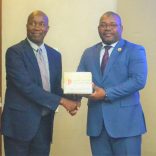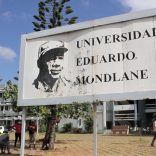Mozambique: Aid desperately needed, armed groups must cease attacks on civilians - Refugees ...
Human rights commission opposes exorbitant media fees – AIM report

Mozambique’s National Human Rights Commission (CNDH) has warned that the imposition of licensing fees on the country’s mass media must not compromise the fundamental right of the public to information.
Without any consultation with journalists and media institutions, the government issued a decree in July on licensing and accreditation of media and correspondents which establishes fees that are believed to be the highest in the world.
The new licence fees, unprecedented in Mozambique, are 800,000 meticais (about 13,600 US dollars, at current exchange rates) for a provincial radio station, a million meticais for a regional radio, and two million for a national radio. Even a community radio would have to pay a fee of 50,000 meticais. For television stations, the fees range from 150,000 to three million meticais.
The fee for “publications of an informative nature” is set at 200,000 meticais. As for the accreditation of foreign correspondents, the basic fee is set at 100,000 meticais, but a foreign correspondent resident in Mozambique is expected to pay 500,000 meticais. Even freelancers are hit with heavy fees. A Mozambican freelancing for foreign media will be expected to pay 30,000 meticais, while the fee for a foreign freelancer rises to 150,000 meticais.
The proposed fees have caused outrage and have been condemned by press freedom and human rights bodies in Mozambique and internationally.
In measured language, the CNDH, in a Thursday press release, added its voice to the critics of the proposed fees. It accepted that the government has the right to update licensing and accreditation fees, but said such a measure should not undermine the right to information.
The CNDH points out that the current legal framework on access to information “takes as its guidelines the greatest divulging of information and free access to information. In other words, access to information is a matter of public interest and this access should be promoted and facilitated”.
The legal framework, the CNDH continued, meant that the relevant state bodies must take measures “to promote the broadest possible access to information”.
But the enormous fees imposed by the July decree “are not in line with the guidelines contained in the legal instruments on the right to information that are in force in the country”, warned the CNDS.
The release noted that the new fees have appeared at a time of economic hardship for most Mozambicans. “Imposing the new fees in an economically unfavourable context, could be reflected on the final consumers of information, who are the economically vulnerable strata of the population”, it said.
The justification given for the fees is that they are necessary to ensure the sustainability of the sector – but none of the money raised by the fees will go to the media. The decree states that 60 per cent of the money from the fees will go to the state budget, and the remaining 40 per cent will go to the government’s press office (Gabinfo).
The government is showing signs of backing down. On Tuesday, the government spokesperson, the Deputy Minister of culture and Tourism, Ana Comoana, said that the decree will be discussed before implementation. It would be considered “among all interested parties”.













Leave a Reply
Be the First to Comment!
You must be logged in to post a comment.
You must be logged in to post a comment.